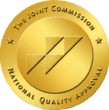Going to inpatient residential rehab without insurance is possible, but it can be quite expensive. Residential treatment is often one of the most costly types of addiction treatment, and without insurance, the cost can be prohibitive for many people. However, there are some options for individuals who do not have insurance and need inpatient care.
Some rehabilitation facilities offer sliding scale fees based on income or may provide financial assistance programs to help individuals pay for treatment. Some government-funded programs, such as state-funded rehab and community health centers, also provide free or low-cost addiction treatment.
If you are considering inpatient residential rehab but do not have insurance, research and explore all your options for financing your treatment. Speak with the rehab facility to learn more about their payment options and financial assistance programs. Also, consider reaching out to local government agencies or non-profit organizations that may be able to help you access affordable addiction treatment.
Additionally, the cost of addiction treatment shouldn’t stop you from seeking appropriate therapies or recovery programs. Virtue Recovery Center wants to make sure you or a loved one receives the finest treatment available if you or they are considering getting treatment for a drug or alcohol addiction. We’ll work with you to create an affordable payment plan for unforeseen costs.


























